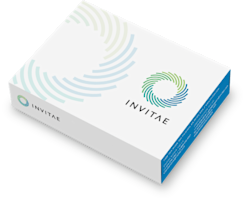
Invitae Adult Refsum Disease Panel
Test code: 06207 •
Test description
The Invitae Adult Refsum Disease Panel analyzes the PHYH and PEX7 genes, which are associated with adult Refsum disease. This test is useful for the diagnosis of patients in whom Refsum disease is suspected due to clinical symptoms or biochemical findings.
Ordering information
Turnaround time:
10–21 calendar days (14 days on average)New York approved:
YesPreferred specimen:
3mL whole blood in a purple-top EDTA tube (K2EDTA or K3EDTA)Alternate specimens:
Saliva, buccal swab, and gDNA are also accepted.Learn more about specimen requirementsRequest a specimen collection kitClinical description and sensitivity
Clinical description:
Adult Refsum disease is a peroxisomal disorder characterized by elevated plasma phytanic acid. Adult Refsum disease most often begins with night blindness in the late childhood followed by loss of smell, neuropathy, hearing loss, and ataxia. Adult Refsum disease has a slowly progressive disease course. Other findings may occur in a subset of affected individuals including mild generalized ichthyosis, cataracts, renal failure, psychiatric disturbances, and cardiac arrhythmias. Approximately one third of affected individuals also have congenital short metacarpals and metatarsals.
Dietary restriction of phytanic acid can lead to reductions in plasma phytanic acid levels, and may resolve or prevent progression of certain features of adult Refsum disease, including peripheral neuropathy, ichthyosis, and ataxia. Periods of metabolic stress such as infections or pregnancy can lead to a rapid rise in phytanic acid levels and worsening of symptoms.
Assay information
Invitae is a College of American Pathologists (CAP)-accredited and Clinical Laboratory Improvement Amendments (CLIA)-certified clinical diagnostic laboratory performing full-gene sequencing and deletion/duplication analysis using next-generation sequencing technology (NGS).
Our sequence analysis covers clinically important regions of each gene, including coding exons and 10 to 20 base pairs of adjacent intronic sequence on either side of the coding exons in the transcript listed below, depending on the specific gene or test. In addition, the analysis covers select non-coding variants. Any variants that fall outside these regions are not analyzed. Any limitations in the analysis of these genes will be listed on the report. Contact client services with any questions.
Based on validation study results, this assay achieves >99% analytical sensitivity and specificity for single nucleotide variants, insertions and deletions <15bp in length, and exon-level deletions and duplications. Invitae's methods also detect insertions and deletions larger than 15bp but smaller than a full exon but sensitivity for these may be marginally reduced. Invitae’s deletion/duplication analysis determines copy number at a single exon resolution at virtually all targeted exons. However, in rare situations, single-exon copy number events may not be analyzed due to inherent sequence properties or isolated reduction in data quality. Certain types of variants, such as structural rearrangements (e.g. inversions, gene conversion events, translocations, etc.) or variants embedded in sequence with complex architecture (e.g. short tandem repeats or segmental duplications), may not be detected. Additionally, it may not be possible to fully resolve certain details about variants, such as mosaicism, phasing, or mapping ambiguity. Unless explicitly guaranteed, sequence changes in the promoter, non-coding exons, and other non-coding regions are not covered by this assay. Please consult the test definition on our website for details regarding regions or types of variants that are covered or excluded for this test. This report reflects the analysis of an extracted genomic DNA sample. In very rare cases, (circulating hematolymphoid neoplasm, bone marrow transplant, recent blood transfusion) the analyzed DNA may not represent the patient's constitutional genome.
You can customize this test by clicking genes to remove them.
Primary panel
Question about billing?
Find answers